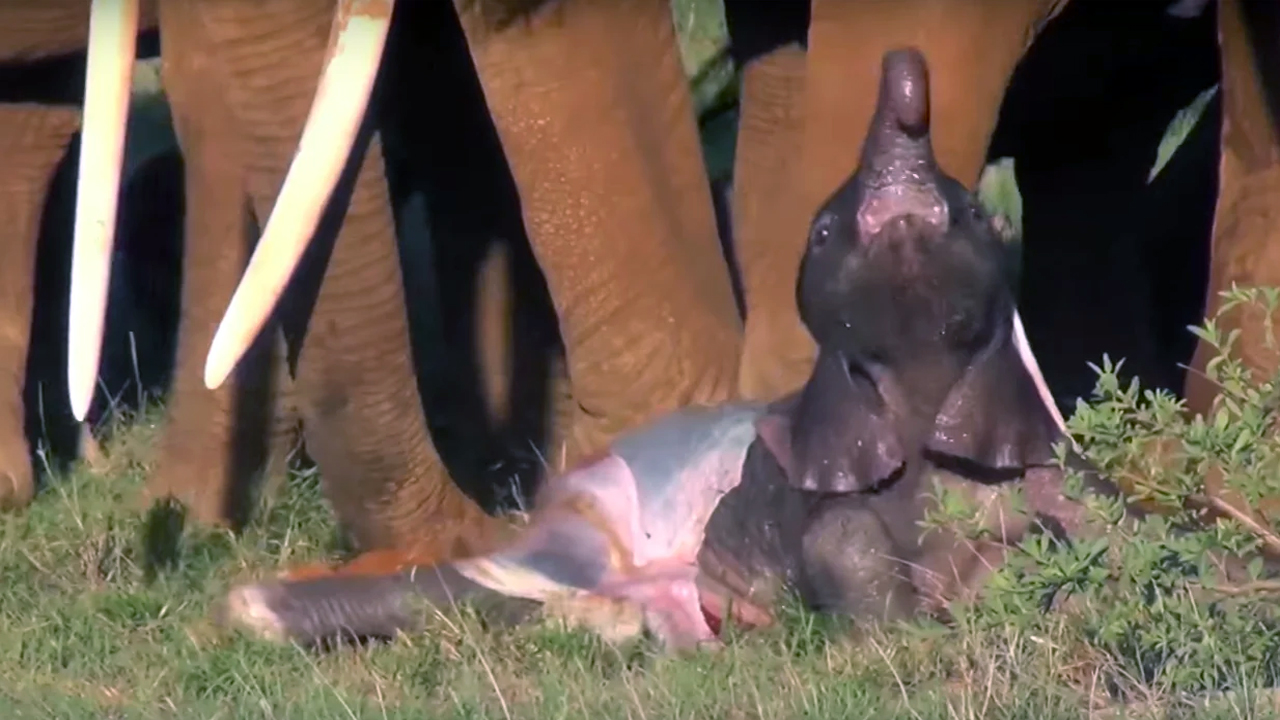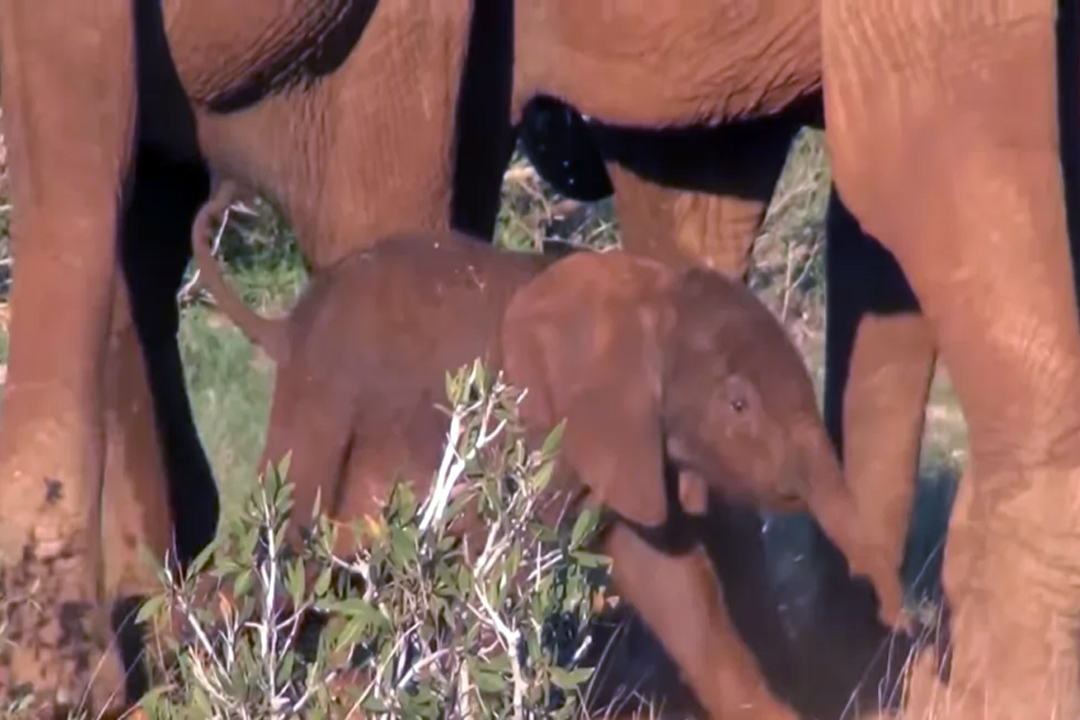Bringing a new life into the world is a wonderful moment, even for animals. That metaphorically beautiful is… It can be an unpleasant experience at the time, but you know what I mean!
The magic of an animal’s birth is multiplied by a thousand percent when it is a species officially listed as “vulnerable”.
While this is definitely a better situation to hold than “endangered” and mostly “extinct”, it still means that every young born to this species is at risk of becoming extinct.
The African elephants are one such animal, and each birth is a miracle.

In this clip, a herd of baby elephants prepares to give birth to one of them.
Elephants form strong bonds in their herds. Elephants are known to be highly empathetic, and their interaction as a group closely resembles group dynamics.
A pregnant elephant is often most vulnerable when it goes into labour. They are in the midst of a critical moment and are fully committed, not worried about many other things. However, the herd remains. This herd guarantees that nothing will happen to one of them.
They surround her and her newborn baby and protect them with their bodies.
Did you know that baby elephants are called calves, female elephants are called cows, and male elephants are called bulls?

I’m not sure, and mixing animal names can be so confusing without even knowing it!
An elephant was born on a rather significant occasion.

The gestation period of the African elephant lasts up to twenty-two months. Almost 2 years of pregnancy!
I don’t know how you feel, but if I’m almost two years pregnant, I’m ready for that baby a few months before my due date!
It takes a while to grow such a big baby. Here, we can see the baby begin to be born as the amniotic sac prolapses.

Finally, the baby comes! One major human benefit is that we don’t fall a few feet off the ground as soon as we’re born!
However, the fall did not affect those healthy baby elephants. The baby was successfully delivered, but we have yet to see it move. It remains tightly enveloped in amniotic fluid as the community crawls around to greet it.
Slowly but surely, their little calf raised its head.

With admirable determination, the baby elephant raised his head to greet the world for the first time. Welcome, little guy. Take a look at all the friends around you.
The calf raises and is ready to welcome the world.
It’s probably thinking, “I’m so glad I got it out of that bag! There are so many other places out here! ”

All cows were mesmerized when they first arrived.
Elephants are known for forming strong bonds and even mo.urni.ng each other’s dea.ths the same way humans do. Elephants will even “cry”. These associations begin at birth and last a lifetime. For an animal that doesn’t seem vulnerable, the more secure they get in their community.
They are very long-lived, about 60 to 70 years, surviving on the strength of their relationships with each other. When a young is born, it is brought into the herd.

This is why conservation is so important.
As new baby elephants are introduced into the world, efforts are needed to maintain strong conservation efforts. One commenter on the video said it was great:
“Absolutely precious, I hope everyone who watches these videos realizes that these animals are on the [currently vulnerable] list, and the more we are aware of this, the more awareness we can bring to this ongoing problem. What do we really use Ivory for? We don’t need it for anything except gaining wealth on the backs of these magnificent creatures.”